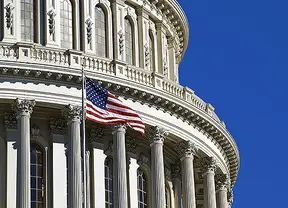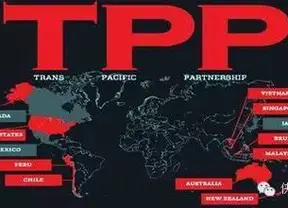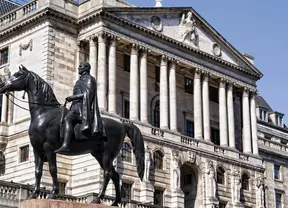
South Korea's central bank on Wednesday lowered its policy rate from 2.25 percent to 2 percent, marking the record low and the identical rate maintained during the global financial crisis.

U.S. stocks bounced back fiercely Wednesday, as investors were reassured by the Federal Reserve's minutes which signaled that the first rate hike may not come soon.

South Korea on Wednesday raised its worrying pitch on the prolonged weakness of the Japanese yen, which would dent competitiveness of domestic exporters, but the central bank kept its stance that the effect of further rate cuts to respond to the weak yen would be restricted.

The International Monetary Fund said on Tuesday that it predicts unemployment in Algeria to to hit 10.8 percent in 2014, compared to 9.8 percent in 2013.

South Korean shares fell for seven straight sessions Monday as the sharp increase in the won/dollar exchange rate boosted worries about volatile foreign exchange market.

South Korea's currency dropped versus the U.S. dollar Monday to trade at the six month low as the dollar appreciated to major currencies after the release of positive U.S. jobs data.

A senior South Korean central banker signaled an additional interest rate adjustment after the Bank of Korea (BOK)'s growth outlook change next month, indicating a possible rate cut in November.

India's central bank, the Reserve Bank of India (RBI), Tuesday decided to keep key interest rates unchanged in its fourth bi-monthly policy review.

Deposit and lending rates in South Korea fell to record lows last month as the central bank cut the benchmark interest rate, Bank of Korea (BOK) data showed Monday.

South Korea's top central banker said Tuesday that the central bank will brace for a possible swing in the foreign exchange rate and the difference between local and foreign interest rates that may come from monetary policy changes in major economies.

South Korean shares slid Monday on concerns that the U.S. central bank may signal its move toward policy rate increases at the September policy meeting this week.

South Korea's central bank on Friday showed its neutral stance toward further rate cut, citing both positive and negative factors facing the economy.

The Reserve Bank of New Zealand on Thursday held the official cash rate (OCR) at 3.5 percent, citing falling commodity prices and the high exchange rate as curbs on economic growth.

The final seasonally-adjusted eurozone manufacturing purchasing managers' index (PMI), a gauge of the industry activities, slipped to 50.7 in August from 51.8 in July, the lowest reading since last July, according to a Markit survey published Monday.

The Austrian unemployment rate rose 10.1 percent year-on-year in August to reach 7.6 percent or 355, 643 people without work, new figures released Monday have revealed.

France was set to number more jobseekers at the end of July as worse-than-expected growth fuelled further job claims, the country's Prime Minister Manuel Valls said Tuesday.

Britain moved perceptibly closer to a rise in the Bank Rate with the first split vote among Monetary Policy Committee (MPC) members for three years on whether to increase the current 0.5 percent rate.